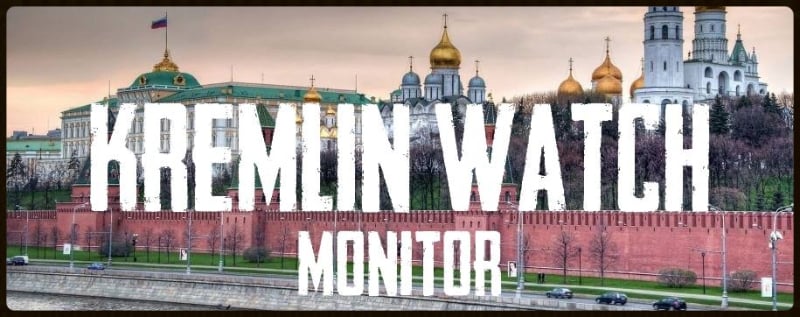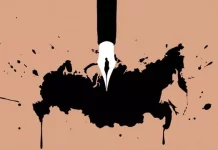
New publications
How to protect your democratic elections from Russian influence? Read our new article published by the Atlantic Council co-authored by Jakub Janda and Veronika Víchová. If you want to read more about the detailed approach we recommend, here is our Framework guide to tools for countering hostile foreign electoral interference.
Also, Jakub Janda, the Head of the Kremlin Watch Program, has been quoted by the Washington Post in an article highlighting that European efforts to counter Russian interference started a long time ago, while the United States is only starting to realize the problem now.
Putin’s Champion Award
Our Expert Jury consisting of Jessikka Aro, Peter Kreko, Nerijus Maliukevičius, Anton Shekhovtsov and John Schindler regularly votes on the dangerousness of several candidates you can nominate via e-mail or Twitter.
The 12th Putin’s Champion Award Recipient is:
Former Minnesota governor Jesse Ventura
For joining the Kremlin disinformation machine Russia Today and essentially playing the role of a useful idiot.

The Expert Jury ranked his Putin-supportive job with
2.8
(out of 5) mark.
The rating signals how much the recipient contributed to the interest of the Putin’s aggressive regime. It is calculated as an average of ratings assessed by the Expert Jury of this Award.
You can find more details about the award and the former recipients here.
Weekly Update on the Kremlin Disinformation Efforts
News from across the Atlantic
The Canadian Security Intelligence Service published a report based on a workshop it organized as a part of its academic outreach program. The paper assesses Russia’s foreign and domestic policy, security consequences for the West, and among other things, mentions our recommendation for the establishment of strategic communication departments within the administrations of EU countries.

After passing the bipartisan Counter-Propaganda Bill co-authored by Senators Portman and Murphy, which mostly focused on efforts in Europe, Congressman Joe Kennedy introduced a new bill in order to create a National Russian Threat Response Center. It should analyse information coming from the intelligence services, diplomatic channels and law enforcement agencies and develop policy recommendations.
The Radio Free Europe/Radio Liberty and the Voice of America are also trying to tackle the problem, in a slightly different way. Their new project Current Time is broadcasting in the Russian language in order to provide an alternative platform for the Russian-speaking population in Europe instead of the propagandistic channels of the Kremlin. They also recently set up a website called Polygraph dedicated to fact-checking, for now in English. You can read more about these services in a recent article by The Economist.
Infographics of the week
With our partners from Hungary, Slovakia, Poland and Austria, we recently produced a comprehensive study on the Russian influence and impact on the far-right in our countries. Here is an infographic reminding you the recipe of the Kremlin in order to influence extremist groups and undermine the stability of the region.

Kremlin Watch Reading Suggestion
Computational Propaganda in Russia: The Origins of Digital Misinformation; by Sergey Sanovich, published by the University of Oxford
Read the full study here.
Russia could be on a mission to restore its Soviet or imperial glory and to prevent liberal democratic values from taking root in the Russian political system. Yet the tools used are precisely the ones that emerged during the liberal 1990s and until recently was not subject much to government interventions: the online media and tech sectors. Nowadays, the Russian government build up many sophisticated tools of online propaganda. It uses, for example, the ability of bots to jam unfriendly and amplify friendly online content, it also utilizes online tracking and measurement tools to make sure that the content it pays for reaches and engages the target audiences. Last but not least, Russia invested in the hacking capabilities that allow for the quick production of compromising materials.
Therefore, entities that might become a target of Russian online propaganda campaigns should invest in their cyber defence. It is very important for the mainstream media to build up their reputation so they are trusted by the public, which would then be more resilient towards Russian propaganda. Educating the public in this topic, exposing how the propaganda machine works and finding technological means of disrupting its activity are another thing that should be done.
Good Old Soviet Joke
Are there any dark sides to the victory over Germany? Thre are two: the Red Army has seen Europe, and Europe has seen the Red Army.
Euroatlantic experts on disinformation warfare
Carl Miller in his article about the possibilities of malign social media manipulation for The Wired: “States today are not only about sending messages to the public; they are also about pretending to be the public.”
The Atlantic Council’s Digital Forensic Research Lab demonstrates such activities on the case of Germany, a common target of Russian bots and social media manipulations because of its upcoming elections.
In an interview with Stopfake.org, Aric Toller from Bellingcat criticises the Ukrainian social media restrictions and says that the most common reason for spread of disinformation is laziness and irresponsibility of journalists.
Kremlin Watch Reading Suggestion
Czech Television under fire
The Czech public broadcaster is quite unpopular amongst Czech disinformation outlets, and some stories from last week illustrated it very well. Aeronet, which is known for spreading disinformation, accused the Czech Television of… well, spreading disinformation. At Nová republika, the station was called a “presstitute” and many other unflattering names. On the contrary, the private broadcaster Prima has received much praise on several websites for airing Oliver Stone’s The Putin Interviews.
False facts about NATO
Did you know that when a country enters NATO, it loses control over its security policy? No? Then you can find more at Aeronet. According to Nová republika, NATO also killed Qadaffi to prevent Libya from creating a gold-backed currency. Nevertheless, the evil NATO is not united – Germany is trying to take control over it and it might result in the USA occupying Europe.
Kremlin Watch is a strategic program of the European Values Think-Tank, which aims to expose and confront instruments of Russian influence and disinformation operations focused against liberal-democratic system.




